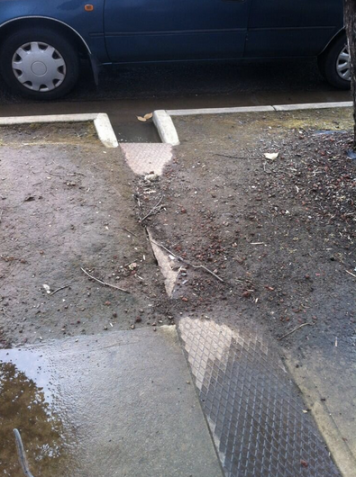I have rented all my life. I have gone through phases where I thought it was time to buy some ol’ house so I could be like my friends. But then I thought better of it. The idea of $400k mortgage doesn’t sit well with me at all – as you have probably gathered from other posts on this blog. And now, through inspiration, I have realised there is a way around that – I don’t need nor want a fancy house in the inner suburbs, where I can host yuppie soirees for people I don’t really like. Nope, I have my sight set on something much better than that, my tiny house in the country.
Being a renter I know all the cons of renting. The pros exist but are fewer. So, for a bit of fun, I thought I’d share the top 5 things I hate strongly dislikes about renting.
The houses. A lot of houses are bought with the sole purpose of being rented out. Some are rented out as is and others are renovated beforehand, like the place I currently live in. You can tell it has been renovated for the sake of an investment – so many features haven’t been thought through, it’s almost as though the owner forgot that people are actually going to be functioning in the house. Take my bathroom tiles for example – never have I experienced a slipperier tile. Not ideal for a bathroom, no? You know, with the water and the walking and the feet? The windows in this place may as well not even be there. They provide no insulation against the weather or noise. I can hear conversations on the footpath outside as clearly inside as I could if I were on the other side of the wall.
I guess I am pretty fortunate to live in a place that is reasonably safe and well presented. Not so, for some of my friends. The houses they call home should be condemned. But through apathy and a slight fear of being homeless they don’t raise things as concerns. Property managers and landlords take advantage of this.
Lazy property managers. Ceiling light, exposed wires. Quite a hazard? 3 months and counting to have it repaired. But rest assured, the property manager is “working at it as hard as they can”. Yeah right.
Property managers are like temping agencies. They demand huge fees and once they have assigned the temp, or in this case tenants, they are rarely seen again. Oh, other than at their quarterly inspection. But they are usually not seen then – they come when you’re at work and leave a condescending piece of paper on the kitchen bench.
Arbitrary rules. “No, you cannot put a raised garden bed on the lawn! However, please make sure you maintain the lawn that we planted – water it, fertilise it, waste your time and money on it…”
Taking $16k a year and putting it in the bin. This is a bit of an exaggeration, I know. For that money I am getting a pretty decent roof over my head. However, at the end of the day I have nothing to show for it. This is the obvious downer for most renters and the reason why they buy – they want to feel as though they own the place in which they live. Even if they won’t for many many decades, and even if they have to pay for the value of their house twice – if you take into account interest rates.
The anxiety. The way property managers make you feel is terrible. Those quarterly inspections. Where they, common people themselves, come into your home and critique the way you live. If only they were there to inspect wear and tear on the place. Oh no, I have heard horror stories about them critiquing the way in which the floor was vacuumed and the like. I’d love to see my property managers house. She looks like the type where the carpet in front of the couch would be covered in chip crumbs.

